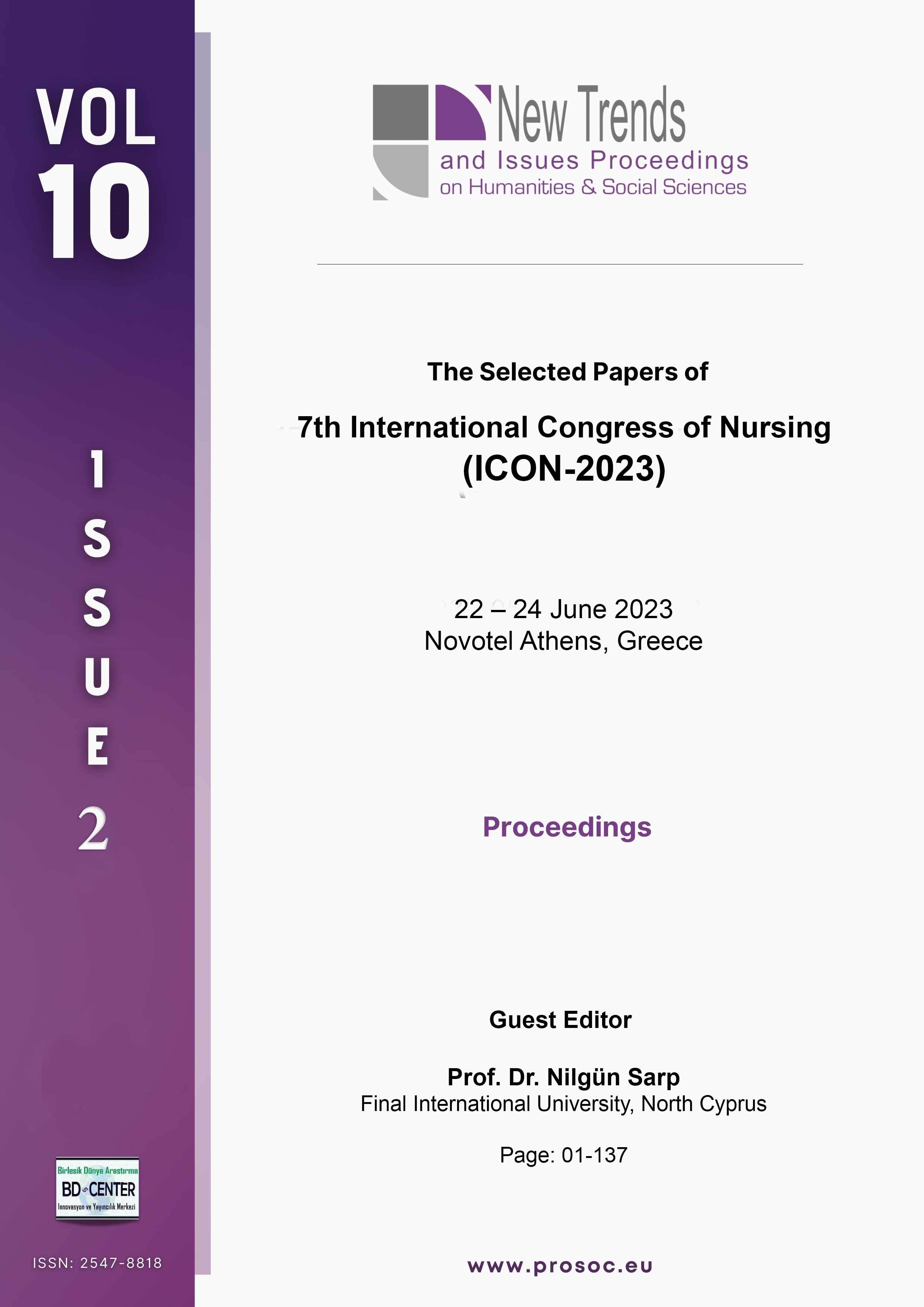Knowledge, attitudes, and behaviors of nursing students toward evidence-based nursing
Main Article Content
Abstract
This descriptive and cross-sectional study aims to examine the knowledge, attitudes, and behaviors of nursing students toward evidence-based nursing. The study was carried out between March 1 and March 15, 2023, with the participation of 196 students who were studying in the nursing department of the Faculty of Health Sciences of a university and volunteered to participate. The data were collected by using the questionnaire form prepared by the researchers in line with the literature and the Knowledge, Attitudes, and Behaviors of Students in Evidence-Based Nursing Scale. Arithmetic mean, standard deviation, median and frequency (percent) values, independent sample t-test, Mann-Whitney U test, Kruskal-Walli’s test, and Spearman correlation analysis were used to evaluate the data. In this study, it was determined that the knowledge, attitudes, and behaviors of nursing students toward evidence-based nursing were not at the desired level. In line with the findings, it is recommended that evidence-based nursing should be included more in the nursing education curriculum.
Keywords: Attitude; behavior; evidence; knowledge; nursing; student.
Downloads
Article Details
- Authors retain copyright and grant the journal right of first publication with the work simultaneously licensed under a Creative Commons Attribution License that allows others to share the work with an acknowledgement of the work's authorship and initial publication in this journal.
- Authors are able to enter into separate, additional contractual arrangements for the non-exclusive distribution of the journal's published version of the work (e.g., post it to an institutional repository or publish it in a book), with an acknowledgement of its initial publication in this journal.
- Authors are permitted and encouraged to post their work online (e.g., in institutional repositories or on their website) prior to and during the submission process, as it can lead to productive exchanges, as well as earlier and greater citation of published work (See The Effect of Open Access).
